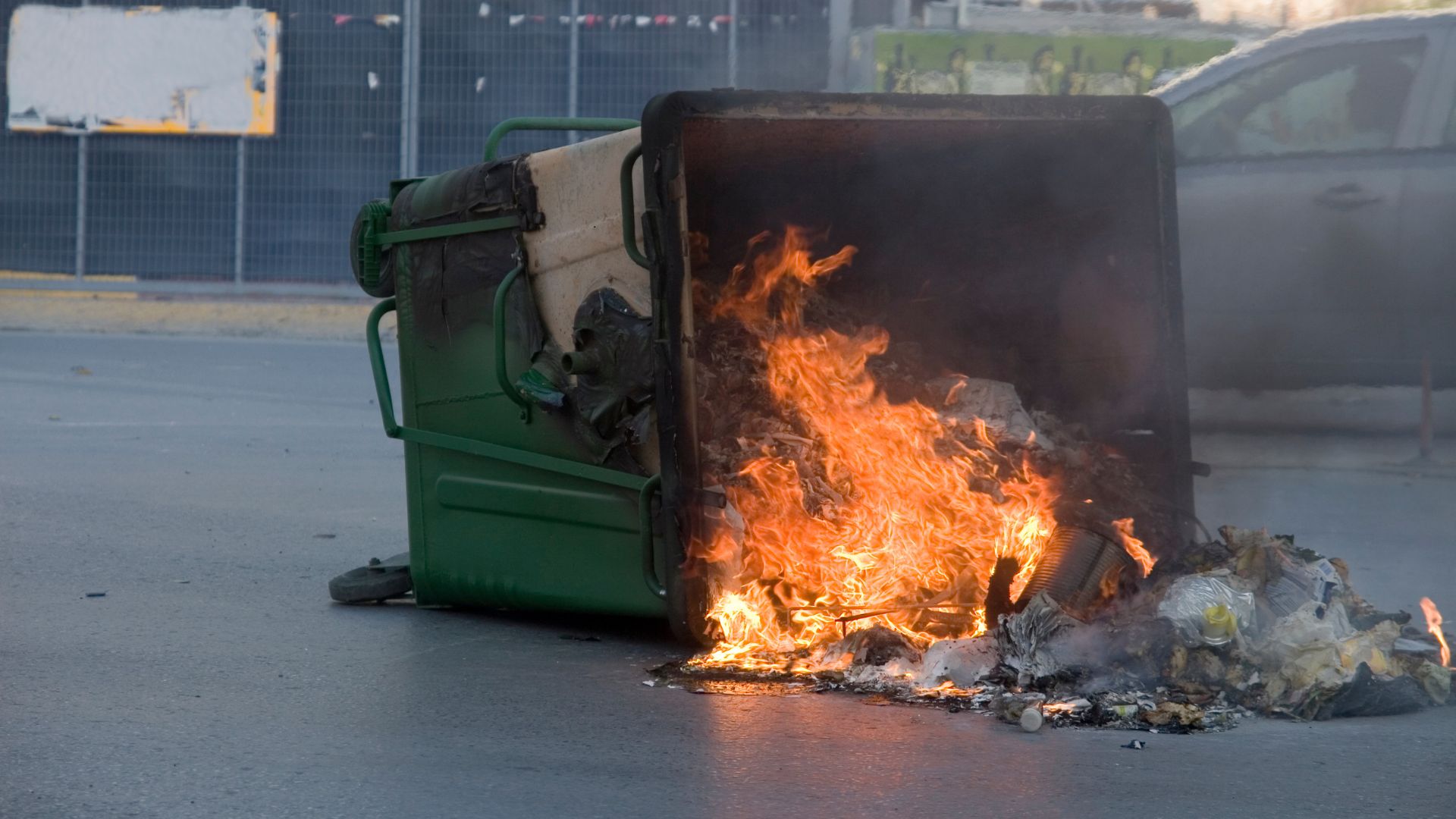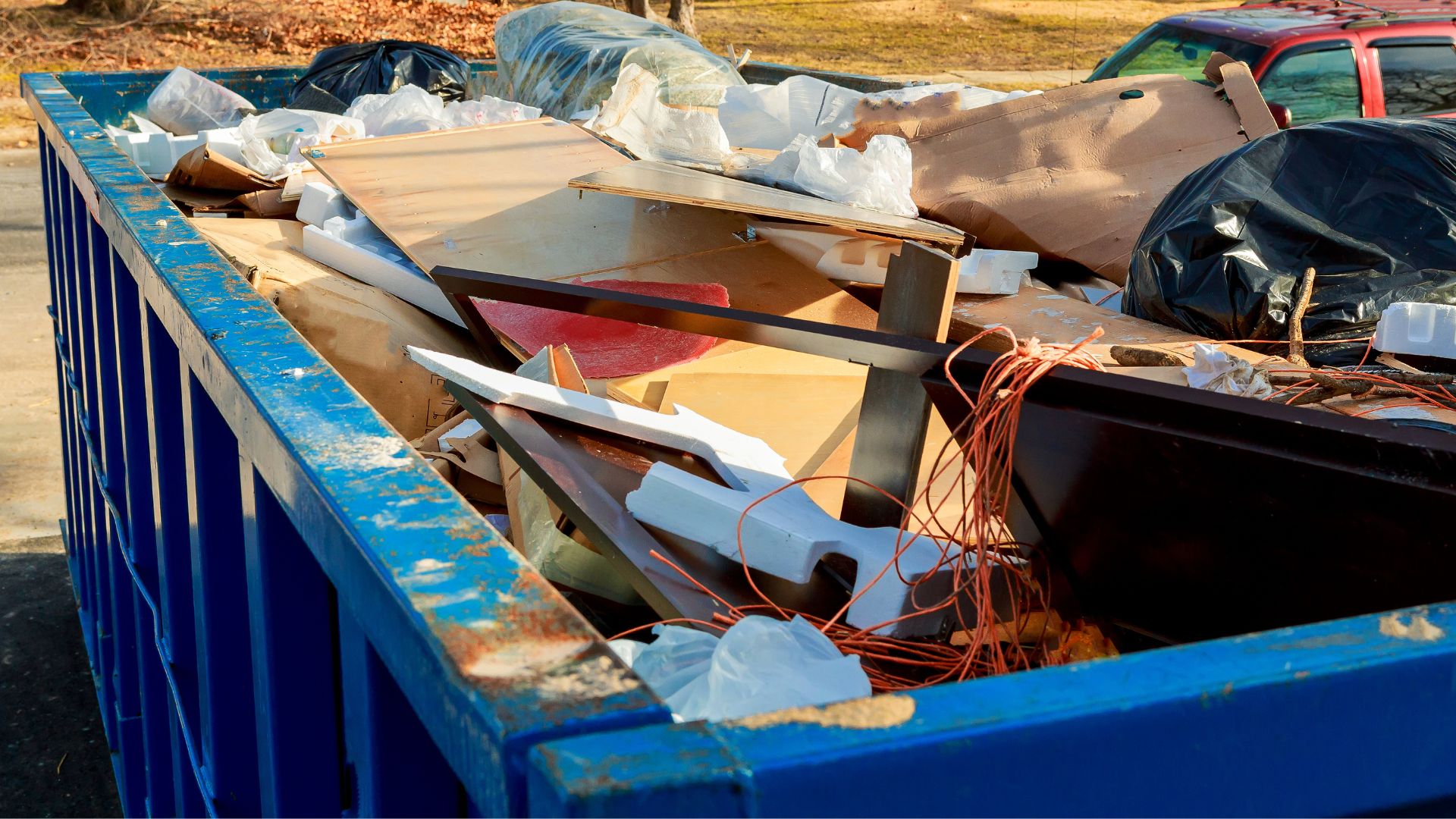Storing skip bins under the relentless Australian sun can be more challenging than you might think. Whether dealing with household and green waste disposal from a big cleanup project around your property or managing construction debris on a building site, ensuring your bins can withstand the sun’s UV rays is essential for their longevity and effectiveness.
Let’s dive into the key risks and some easy, practical precautions and solutions to protect your bins, boost their durability and longevity and keep them in tip-top condition.
Understanding the Risks of Sun Exposure
We all know the Aussie Sun can be brutal, but have you ever considered what it does to your skip bins? Or what precautions you should take when thinking about skip hire?
UV damage: The sun’s rays are a silent killer, particularly when the temperature rises in Australia. Over time, they break down the products your skip bins are made from, especially plastic-based materials. The result? Brittle bins that crack at the worst possible moment. For metal, you’re looking at warping, peeling paint and even rust—not something you want to deal with when you’ve also got a load of waste to manage.
Overheating: When your bin sits in the sun all day, it can heat up like a toaster. Not only does this warp the metal, but it also creates an ideal environment for anything flammable inside the bin. Overheating also increases the chances of unpleasant smells. No one wants their skip bin to become a stinky hotspot.

Best Materials for Skip Bins in Sunny Climates
When it comes to beating the sun and hot weather, some materials are just better than others.
Plastic bins
High-density polyethylene (HDPE) is the standard for plastic bins in Australia. It’s more resistant to UV rays than most plastics, but that doesn’t make it bulletproof. You’ll still need to give it some extra love in sunny areas.
Pros: lightweight, corrosion-resistant
Cons: chance of cracking over time if left in the sun for too long
Metal Bins
Steel skip bins are tough and can handle heavy loads, but they are vulnerable to rust and heat unless treated with protective chemical coatings.
Pros: durability, strength
Cons: heat-sensitive, risk of rusting if not maintained properly, particularly in wet areas
Protective Measures to Take
When it comes to safeguarding your skip bins and their contents from the harsh Australian sun, taking a few proactive steps can make a world of difference. Here are some practical solutions to ensure your bins stay secure and extend their lifespan.
Covering Options: Shields Against the Sun
One of the easiest and most effective ways to protect your skip bin is by using UV-resistant covers or heavy-duty tarps. These provide a shield from direct sunlight, preventing the bin material from deteriorating over time. Covers also have the benefit of keeping rain, debris and even unwanted pests out, making them a great all-round solution for skip bin storage. Tarps and covers are ideal for both plastic and metal bins, ensuring that UV rays don’t cause premature wear, fading and cracking. By adding a simple cover, you prolong the lifespan of the bin while reducing maintenance costs.
Placement Tips: Shade and Safety First
So you’ve hired your skip, and you’re ready to get started filling it with junk. But wait! Before diving in, you need to think about where you are going to place your skip to protect it from environmental hazards. Location, location, location!
The positioning of your skip plays a significant role in minimising sun damage. Find a space with natural shade protection, such as under trees, near buildings, or in areas that receive less direct sunlight throughout the day. This simple act reduces the impact of UV rays and keeps the bin cooler, preventing warping, overheating and deterioration over time.
Aside from shade, you should also take into account safety precautions, especially for projects in open or windy areas. Secure skips from windstorms by positioning them on level ground, out of the direct path of the wind. This provides added stability and helps prevent them from tipping over or causing accidents during storms.

Following Local Regulations and Restrictions
In Australia, it’s essential to stay compliant with local council regulations when it comes to skip positioning and usage. Each council will have different rules, and understanding the guidelines in your region is critical to avoiding fines and ensuring smooth waste management.
For example, in Melbourne, you may need a council permit if you’re planning to place your skip bin on public property such as nature strips or roads. These permits ensure the safety of pedestrians and proper waste management. The City of Melbourne provides detailed guidelines on where and how bins can be placed, so be sure to check with your local council for specific requirements.
Further afield on the Sunshine Coast, waste removal experts advise similar precautions. Councils have regulations on where skip bins can be placed to prevent obstruction of traffic and public spaces. Depending on your project, you might also need a permit, especially if you’ve been positioned on council land. Failing to comply with these rules can result in penalties, so it’s always worth consulting your council for up-to-date information. You can always seek further guidance from a skip hire business you can trust on these issues.
Innovative Storage Solutions for Your Skip Bin
Like all waste management solutions, skip bins are evolving, and so too are the solutions available to protect them from the harsh Australian sun. From UV-resistant materials that prevent degradation to smart ventilation systems that combat overheating, innovative skip bin storage options are making it easy to keep your bins in prime condition.
Whether you need a budget-friendly option or the latest in protective technology, there are a range of skip bin storage options and products available for your waste management needs. These solutions are designed to help manage the challenges of heat, UV exposure, and waste degradation.
Secure Your Skip Bin Today
Storing skip bins in the Australian sun doesn’t have to be a hassle. By considering your skip bin’s size, weight needs, and protection requirements, you can keep costs down and ensure that your waste management runs smoothly. Using UV-resistant covers, placing your bins in the shade, and performing regular maintenance can significantly extend the life of your skip bin.
Whether you’re using a skip for household waste removal, recycling, a short-term project, or managing a large-scale building job, Best Price Skip Bins are here to keep your construction, deconstruction and renovation projects running smoothly year-round.
Prioritise safety and seek guidance from a trusted and professional skip bin company. Contact us to learn more, have your questions answered by an expert and organise skip bin hire today.
